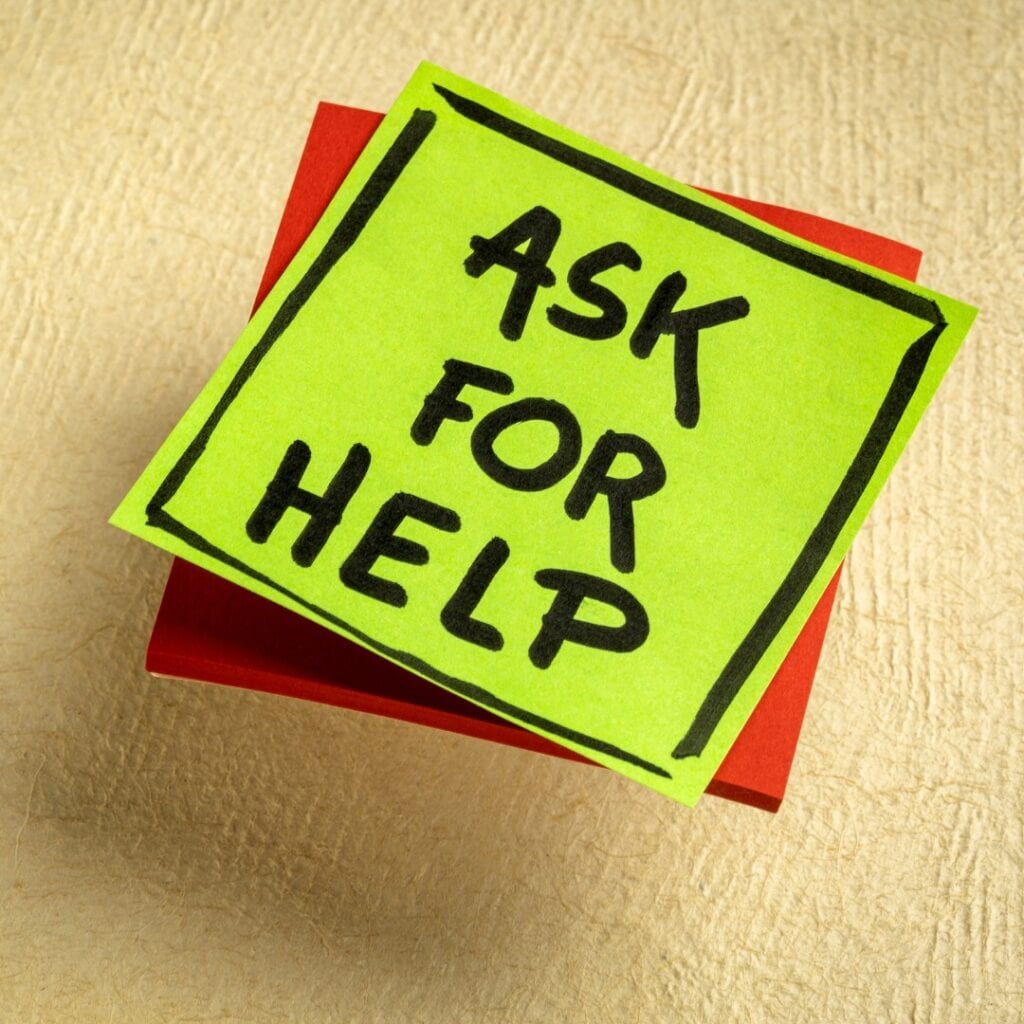One of the most challenging aspects of dealing with disability is not being able to be fully independent. Sometimes the need to rely on others can make us feel like we are asking too much of the people around us. Feeling like you are being a burden or that you are asking too much can become a mental barrier to getting the help you need and can leave problems and chores piling up until they become completely unmanageable. Recognising when to reach out for assistance is a vital part of self-care. It not only lightens your physical load but also nurtures emotional well-being.
One of the biggest hurdles with chronic pain is admitting you need help. Pride, stigma, and a desire to avoid inconveniencing others can prevent you from speaking up. Over time, this reluctance can exacerbate physical symptoms and lead to burnout.
It’s important to remember that needing help is not a sign of weakness. We all need assistance from time to time and knowing when to ask is a strength that will let you live a better quality of life.
Signs You Need Help
- Daily Tasks Become Overwhelming
If routine activities like cooking, cleaning, or grocery shopping are causing pain or exhaustion, it might be time to enlist help. - Your Pain is Worsening
Ignoring your body’s signals can lead to flare-ups or even long-term damage. If your pain is intensifying, seeking support can help prevent further complications. - You Feel Emotionally Drained
Chronic pain doesn’t just affect the body—it can take a toll on mental health. If you’re feeling overwhelmed, anxious, or depressed, reaching out for help can provide relief and connection. - Your Treatment Plan Feels Unmanageable
Keeping up with medications, appointments, and therapies can be daunting. A friend, family member, or support worker can help you stay on track.
How to Ask for Help
- Be Specific
Let others know exactly what you need. Whether it’s help with errands, attending a doctor’s appointment, or simply having someone to talk to, clarity makes it easier for others to assist. - Start Small
Start with small requests. This can build your confidence and demonstrate that most people are happy to lend a hand. - Use Available Resources
Chronic pain communities, support groups, and organizations like NDIS providers can offer professional assistance tailored to your needs. - Thank People Instead of Apologising
Acknowledging the help you receive fosters positive relationships, framing the interaction around gratitude will help reframe your mind to not see yourself as a burden.
The Benefits of Seeking Help
When you ask for help, you’re not only easing your burden—you’re also fostering stronger connections with those around you. Family and friends often want to support you but may not know how. By reaching out, you’re giving them a chance to show their care.
Professional support can also make a significant difference. For example, NDIS providers can provide you with access to tailored services that empower you to live independently while receiving the assistance you need.
Final Thoughts
Living with chronic pain is challenging, but you don’t have to do it alone. Recognising when to ask for help and taking that step can improve your quality of life in ways you might not expect.
Remember, asking for help isn’t a weakness—it’s a strength that shows you’re taking control of your health and well-being. Whether it’s from loved ones or professional services, support is there when you need it. All you have to do is ask.


